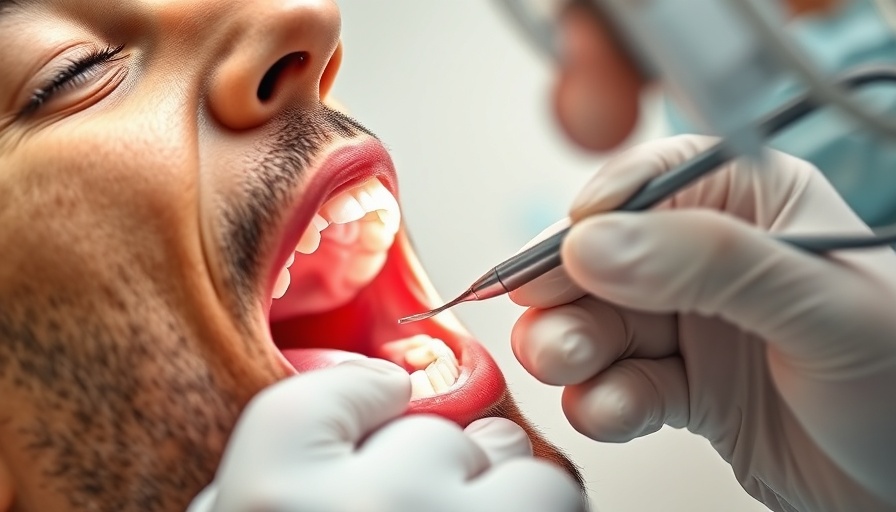
The Growing Crisis in NHS Urgent Dental Care
The NHS is currently facing a critical shortage in urgent dental care, putting the health of millions at risk. According to dentists and health experts, this failure in meeting demand is not just a logistical issue; it's a public health crisis that could lead to what they are calling an ‘antibiotic apocalypse.’ The situation, exacerbated during the COVID-19 pandemic, has resulted in a significant rise in antibiotic prescriptions. The British Dental Association (BDA) emphasizes that while dentists are prescribing antibiotics as a substitute for actual dental treatment, this practice could foster a cycle of increased antibiotic resistance, endangering public health.
Increased Prescribing Rates During the Pandemic
Research from the University of Manchester reveals alarming trends regarding antibiotic prescriptions in dental practices. The data suggests that during the early months of the pandemic, the likelihood of receiving an antibiotic prescription following a dental appointment increased tenfold. Unfortunately, post-pandemic figures indicate that this prescribing level has yet to stabilize, with many regions still struggling to manage adequate dental care. Dr. Wendy Thompson, a member of the BDA and a senior lecturer in dentistry, argues that the mismanagement and slow return to normal prescribing patterns are symptoms of a broader health care problem that must be addressed.
The Possible Consequences of Inadequate Care
Antibiotics are often misused as a quick fix for conditions like toothaches, but as Dr. Thompson cautioned, “Antibiotics don't cure toothache.” Patients are at risk of worsening health conditions when effective dental procedures, which should provide timely relief and treatment, are postponed or inaccessible. With the BDA stating that NHS England had estimated an unmet need for dental appointments at 2.2 million, the urgency of addressing these issues cannot be overstated.
Understanding the Risks of Antibiotic Resistance
The term ‘antibiotic apocalypse’ refers to an alarming scenario where common infections, once easily treatable with antibiotics, become resistant due to over-prescribing. In the dental field, where the BDA estimates that around 10 percent of all antibiotics prescribed are associated with dental treatments, the ramifications of this trend could be disastrous. With an estimated 700,000 urgent dental appointments promised by the government to tackle growing demands, it remains to be seen if these appointments will suffice, especially against the backdrop of already-existing challenges in the NHS infrastructure.
DIY Dentistry: A Growing Trend
In light of these issues, patients have increasingly turned to ‘DIY’ dentistry methods, which could pose serious health risks. As access to urgencies in dental care has been restricted, individuals seeking relief have resorted to unqualified remedies. The BDA warns that this only increases the necessity for timely access to professional dental care to prevent further complications.
Path Forward for Dentists and Patients
To mitigate the risks associated with this crisis, dentists must refrain from relying on antibiotics as a first resort and emphasize the necessity of comprehensive dental procedures. Patients should also understand the significance of seeking professional advice for dental issues rather than self-medicating or resorting to home remedies.
Ultimately, a collaborative effort between health authorities, dentists, and patients is needed to ensure that urgency in dental care is met, combating antibiotic overuse and protecting public health. It is essential that concerned individuals advocate for improvement in NHS dental services, sharing experiences and voicing their need for accessible care.
Call to Action
As the dental care landscape continues to evolve, it is critical for patients and dental professionals alike to stay informed about the implications of antibiotic resistance. We encourage individuals facing dental health issues to seek timely and professional treatment, thus reducing the reliance on antibiotics. Take charge of your oral health today – your future self will thank you!
 Add Row
Add Row  Add
Add 




Write A Comment